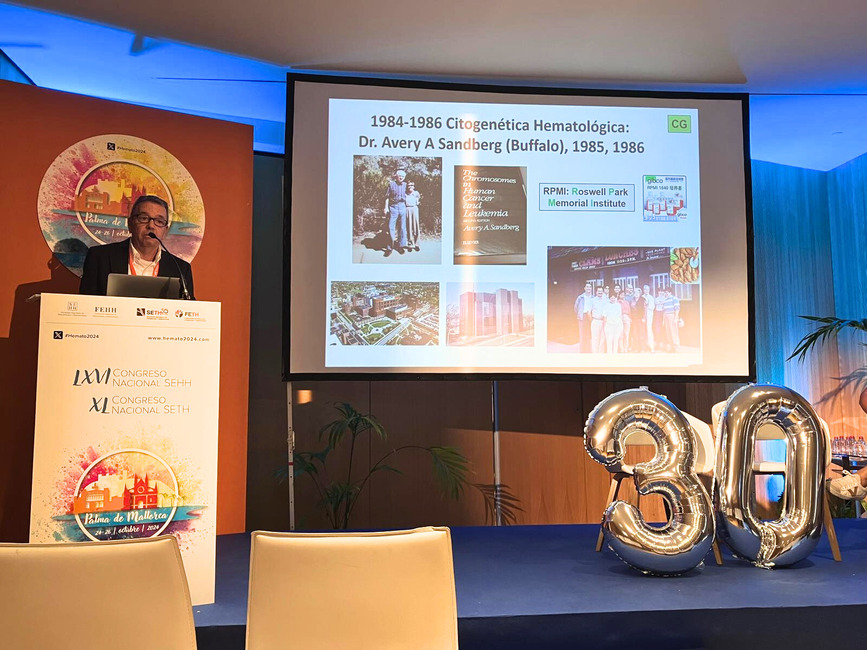Spanish Cooperative Group of Haematological Cytogenetics: 30 years of advances in the study of cytogenetics
Within the framework of the LXVI SEHH National Congress, the Spanish Cooperative Group of Haematological Cytogenetics (GCECGH), founded by Dr. Francesc Solé of the Josep Carreras Institute, celebrates its thirtieth anniversary on a meeting in which the group has recalled the work done while marking the way forward, highlighting the latest technological advances in the discipline.

The LXVI National Congress of the Spanish Association of Haematology and Haemotherapy (SEHH)is taking place in Palma de Mallorca from 24 to 26 October. This congress, which is being held together with the XL Congress of the Spanish Society of Thrombosis and Haemostasis (SETH), covers aspects related to the physiology of blood and haematopoietic organs or the diagnosis and treatment of benign and malignant blood diseases.
The event is a meeting point for haematologist in Spain with more than 2600 attendees. Some researchers of the Josep Carreras Leukaemia Research Institute also participate in the congress, including the president of the IJC Executive Committee, Dr. Evarist Feliu, and researchers Dr. Enric Carreras, Dr. Rafael Marcos-Gragera and Dr. Jordi Ribera, who deliver a lecture.
As part of the congress, a special meeting has been held to celebrate the 30th anniversary of the Spanish Cooperative Group of Haematological Cytogenetics (GCECGH). The creation of the group, which currently brings together more than 100 cytogenetics professionals dedicated to cancer diagnosis, was an initiative of Dr. Francesc Solé, group leader of IJC, scientific coordinator of the IJC Badalona location, and Core Facility Manager.
At the end of the 1980s, cytogenetics was an emerging technique that was already beginning to stand out for its application in the diagnosis of patients with haematological cancers. This gave rise to the need to create a working group of cytogenetics within the SEHH, which was officially founded in 1994 by Dr. Solé, Dr. Isabel Granada (ICO-IGTP-IJC) and Dr. Juan Cruz Cigudosa, current Secretary of State for Science, Innovation and Universities.
Dr. Solé, who chaired the group for 12 years, points out that the GCECGH has been a pioneer in the study of cytogenetics, using techniques such as FISH, multicolour FISH, Arrays (SNP and CGH array) and Optical Genome Mapping. In fact, the group was the first to establish quality controls in haematological cytogenetics and FISH, which are annual modules that are carried out in the different national laboratories to improve the quality of cytogenetic diagnosis.
Dr. Solé considers that the greatest achievement of the GCECGH group is the companionship and union among its members, which has allowed them to unify protocols and has given them great national and international prestige. The celebration of its thirtieth anniversary was the perfect opportunity to applaud all the advances they have achieved and to continue defining a joint roadmap to improve the diagnosis of cancer patients.